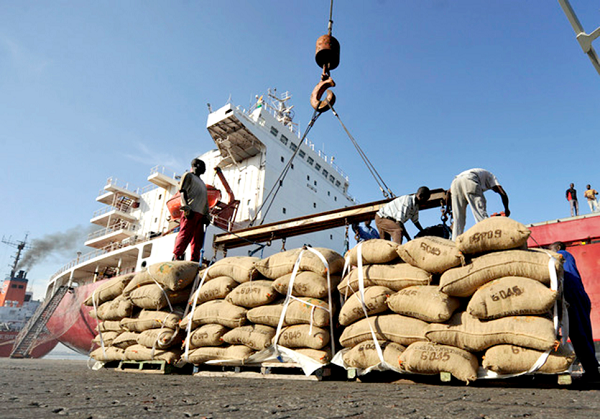The Governor of the Bank of Ghana (BoG), Dr. Johnson Asiama, has again assured the public and financial markets that the local currency is poised for a major boost before the year ends.
According to him, the Ghana Cocoa Board (COCOBOD) is expecting inflows of over $4 billion through a new financing arrangement that will significantly improve the central bank’s foreign reserves.
Speaking to the press, Dr. Asiama stressed that the anticipated inflows will not only support cocoa purchases for the new crop season but also help stabilize the cedi, which has come under renewed pressure in recent weeks. He emphasized that the development signals strong confidence in Ghana’s financial system, particularly at a time when businesses are seeking reassurance about the cedi’s outlook.
The Governor explained that the inflows will be secured under COCOBOD’s recently introduced funding model for cocoa bean purchases. In 2023, COCOBOD made a bold departure from its decades-old reliance on a pre-export syndicated loan, opting instead for a system that requires global traders to deposit at least 60% of their forward contract values upfront.
Under this arrangement, a portion of these deposits is channeled into cocoa purchases through Licensed Buying Companies (LBCs), with COCOBOD acting as the intermediary. This model has been hailed as more sustainable and innovative, as it reduces dependence on international banks while ensuring a steady flow of funds for cocoa procurement.
“The new model puts Ghana in a stronger negotiating position. It creates a reliable funding stream that benefits farmers, supports LBCs, and ultimately builds confidence in the wider economy.”
Dr. Johnson Asiama
Strengthening Reserves and Market Confidence
The Bank of Ghana’s latest Economic and Financial Data, released in July, indicated that Ghana’s international reserves stood at $11.1 billion. With the additional $4 billion expected from COCOBOD’s financing arrangement, the reserves will see a significant boost, providing the central bank with more firepower to intervene in the forex market whenever necessary.
“This development should reassure businesses and commercial banks that the central bank remains well-positioned to step in and meet their demands,” Dr. Asiama stated. He further noted that the inflows would enhance liquidity and ease the pressure on the local currency, creating stability in the market ahead of the festive season and the new year.
Despite recent challenges, Dr. Asiama maintained that the outlook for the cedi remains favorable. He attributed this confidence to solid macroeconomic fundamentals and the government’s ongoing measures to strengthen market liquidity.
“Our net international reserves have not run out, and all indicators point to a positive outlook. As regulator, we have taken the needed actions to ensure that things do not get out of hand. The fundamentals are strong, and we remain disciplined, transparent, and firm in regulation.”
Dr. Johnson Asiama
The Governor underscored that the inflows from COCOBOD would be a turning point for the cedi, boosting investor confidence and calming market fears.
Warning Against Market Manipulation
While expressing optimism, Dr. Asiama also cautioned that the central bank will not tolerate any attempts to undermine the stability of the cedi. He revealed that individuals and institutions exploiting loopholes—such as offshoring funds, fueling the black market, or filing fake import forms—will face strict sanctions.
“The BoG will act decisively against anyone seeking to destabilize the market. We want a transparent system where the cedi trades freely but predictably, anchored in confidence and discipline.”
Dr. Johnson Asiama
Cocoa has long been the backbone of Ghana’s economy, serving as a major foreign exchange earner. By innovating its financing model, COCOBOD has created a mechanism that not only ensures timely payments to farmers but also strengthens the broader financial system.
Analysts believe that the new arrangement could set a precedent for other sectors in need of sustainable financing, reducing dependence on external syndicated loans and boosting self-reliance in trade financing.
The expected $4 billion inflows from COCOBOD provide a timely lifeline for Ghana’s cedi, which has been under pressure in recent weeks. With stronger reserves, enhanced liquidity, and renewed investor confidence, the Bank of Ghana appears ready to defend the currency and restore stability to the market.
READ ALSO: Ghana’s Corn Imports to Skyrocket 67% in 2025/26 Amid Farmer Woes – USDA Report























